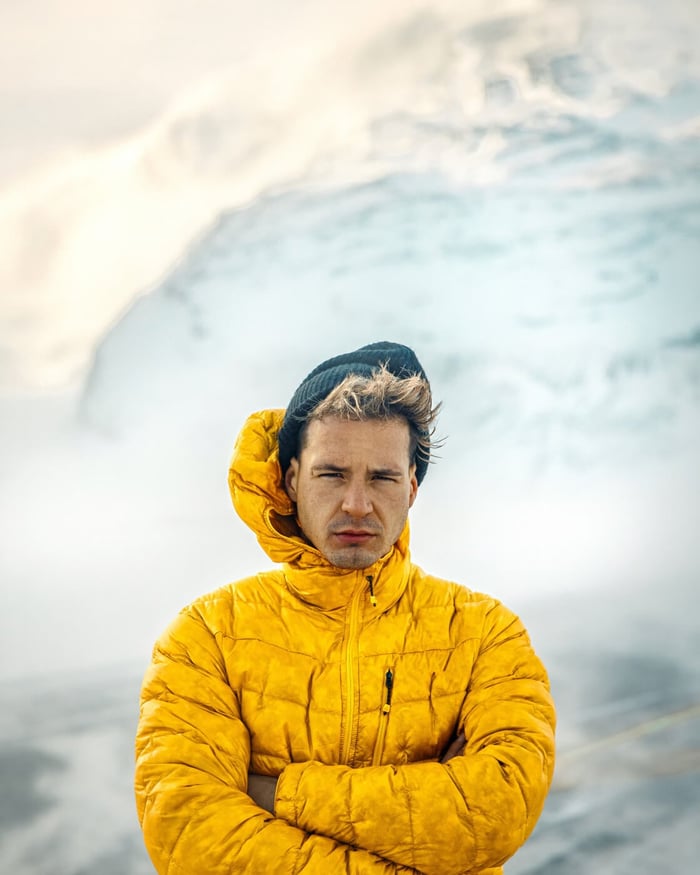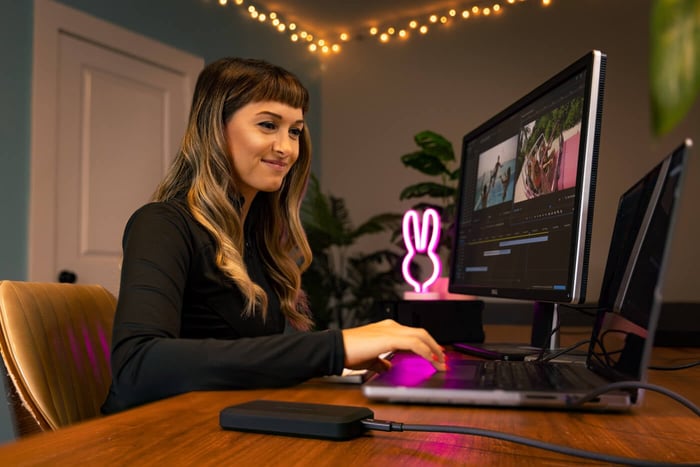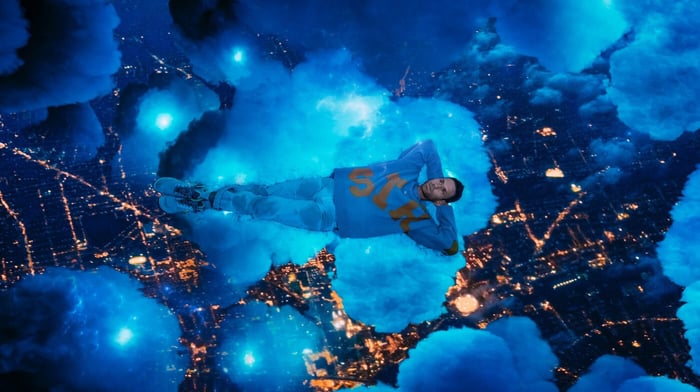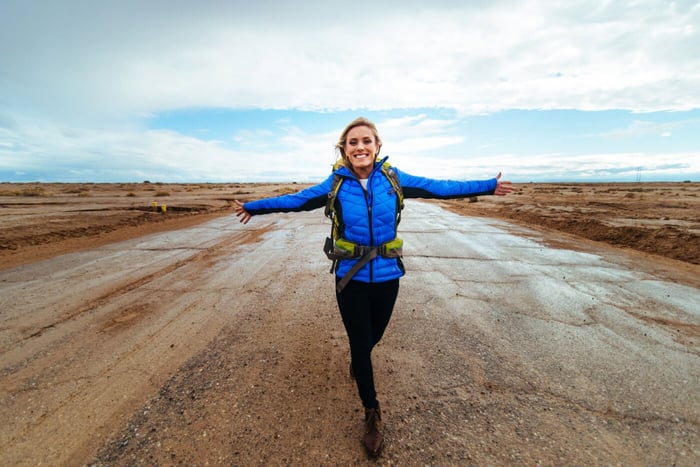For this week's installment of our Creator Spotlight series, we're highlighting Creative Director & Storyteller Colin Dougan. Hailing from Toronto, Canada, Colin creates purposeful content that tells a story. We sat down with him to speak about some of his earliest influences, favorite work and how he keeps organized during his busy work schedule.
Great to have you, Colin! Let's jump right in. If you met a stranger at the airport and they asked you what you do, how would you describe yourself to them?
Colin: At this point, I would say I'm a creative director. I direct commercials, documentaries and short films. I've also been an editor, producer and photographer, so essentially I'm a storyteller at heart. It's been ten years of work to claim that title, but I would say I'm a passionate and ambitious individual who is always looking to expand my vision and team. I'm someone who sees stories in their mind and works to bring them to fruition.
Talk to us about the beginnings of your career and how you got started.
Colin: I began creating videos when I was around ten, mostly home videos for Youtube. The platform had just launched in 2007 and it was such an exciting time because it allowed me to bring my ideas to life.
In high school and college, I studied media in between my business and math courses and immediately fell in love with short-form storytelling. This spiraled into a full on obsession and became part of my everyday routine. I would wake up and write down new ideas, concepts and scripts for short comedy skits. Then, I would gather my friends and film them on the weekends. Initially, I wanted to be a writer/actor/director, but I ended up filming and editing the videos because my friends weren’t super enthusiastic about those roles.
I didn’t ever anticipate that this lifestyle would be a “career” to be honest. Professionally, it all began by filming music festivals for fun. When I first started shooting, I would do same-day edits simply because I couldn’t wait to review the footage. Due to this, I was reshared by the festivals as a ‘first-look’ and it rapidly expanded my network. Fast forward 6 months, I landed a full time placement as an in-house editor. I learned the entirety of adobe suite and integrated different graphics, titles, logos, 3D renders, etc. I wanted to keep expanding my skill set by taking on new work and freelancing.
Can you tell us about your earliest influences as well as the people that inspire you today?
Colin: Christopher Nolan is one of my biggest inspirations because he’s always doing things that shouldn’t necessarily be possible. No matter the size of his budget, he pushes boundaries and has really changed the game of filmmaking as a whole. In his work, he makes supernatural elements come to life. From black holes to space and time travel, he creates captivating work that is insanely creative.
I also love Casey Neistat. He’s all about creating, no matter the size or scope of his project. He challenges himself to work with what he has while pushing boundaries in unexpected ways. I think that’s so refreshing, especially on a platform like Youtube where that is less common. I find that really admirable.
Can you talk about the relationship between travel and filmmaking, and how that has influenced your career?
Colin: Travel is an expensive hobby and I didn’t have much interest in it, until my work brought me places. My first taste of traveling was touring with DJs. From there, I lived on a yacht for a month to create content for a travel brand. After a few years, I worked my way up to tourism board content, and then eventually my focus shifted more towards on-the-ground travel. It was fascinating to experience and capture everyday life in other countries. Moving forward, I’d love to document the lives and stories of individuals in other countries and educate North America about the ins and outs of life overseas.
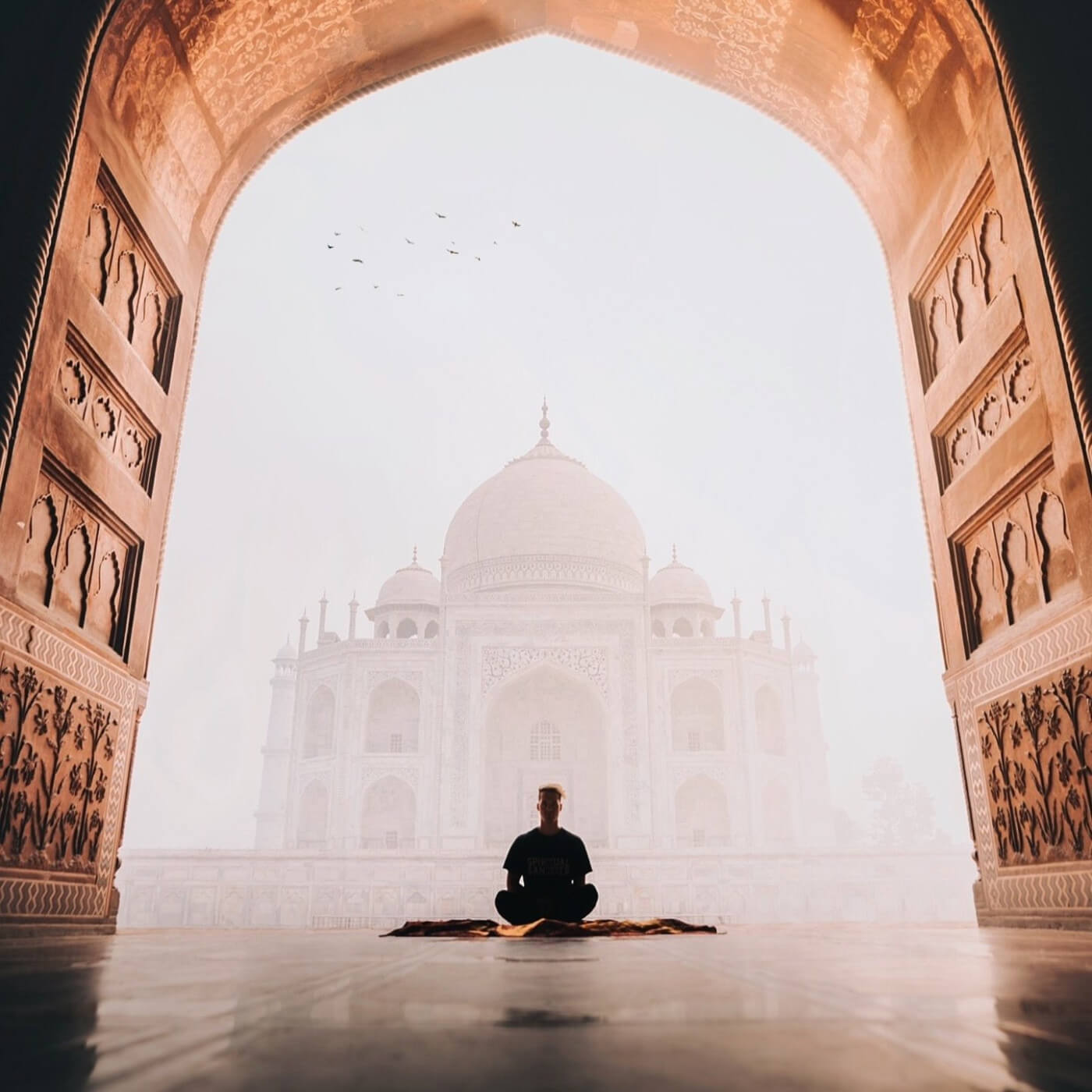
How has technology affected your career? Does anything in particular excite you about where technology's going right now?
Colin: I’m super excited about AI right now. Take something like Chat GPT for instance, that’s a tool that can solve unanswered questions and provide accessibility for smaller filmmakers. It’s not just a chat box, but an invaluable resource. While I’m definitely not recommending anyone use it for legal advice, a tool like that can help you find and source documents, research contracts and just be a real resource for a creative on the go.
I would also say that virtual production is a huge next step in technology. Essentially, you can create a realistic atmosphere rather than using a green screen. This is so ideal because a green screen is super limiting. You have color bleeding and a disconnected sense of reality between the screen, the colors and what you’ll be projecting in post-production. Nowadays, CGI artists are in such high demand, they’re overworked. Virtual production is the solution because you’re able to create the perfect conditions. In terms of production and budget, it saves so much time and money. It allows you to create an affordable production that you have full control over. Instead of waiting for the perfect sunset, you can create it instead. I utilized this for the first time in January and I can’t wait to see the tracking. It’s pretty amazing.
How do you utilize Glyph products in your workflow?
Colin: When you begin using more advanced cameras and directing larger productions, you’re leaving the camera on all the time. For these styles of shoots, utilizing Glyph SSDs and NVMes has been an absolute game changer. I’m no longer waiting to transfer for 10-20 hours just to finish and wipe off my cards. If I need another card ready and need to be shooting ASAP, it’s so important to be able to offload that card and immediately back it up so I can format it. Unless you have a great data storage workflow in place, it can be so scary everytime. Not only that, but I run a mix of having one fast SSD on site and another to back up the work. When I get home, I know my footage will be double backed up in my system. That time is so invaluable when you’re spending tens or hundreds of thousands dollars per day.
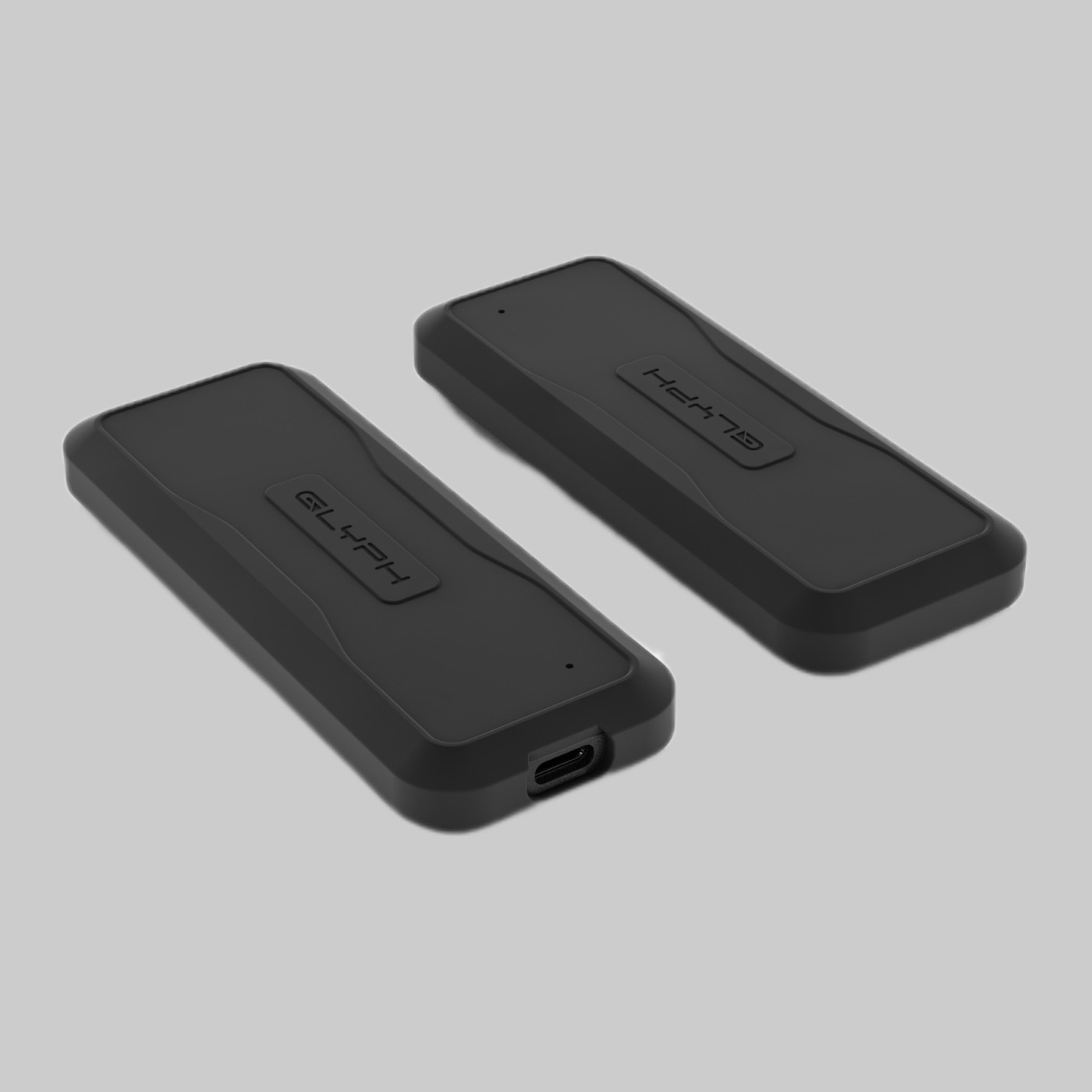
Can you tell us about a time having a data storage strategy prevented you from losing important work?
Colin: When I was shooting a commercial for Bed Head recently, there was an instance where our assistant camera operator left one of the cards at home. We were in the middle of the shoot and we had a pause of 15-20 minutes where it was critical that we unloaded the card (1TB of footage). In any other circumstance, we wouldn’t have been able to back that card up in time. Thanks to the Glyph NVME drives, we were able to transfer that card and get it securely backed up to continue shooting.
I also recently purchased a few SSDs from different companies that had a sale. It seemed like a reliable product, but in 24 hours it had wiped the entire SSD. That was terrifying and thankfully I had a backup. That was a moment where I almost lost valuable footage and time on a hard drive. It really made me reconsider which drives I store my footage on.
Touch on some of your more recent career highlights.
Colin: For me, being the director and producer of the following campaigns and commercials have been a major highlight in my career thus far.
- DJI Mic Commercial
- DJI Mini 3 Campaign
- Bed Head 2023 Global Rebrand (Upcoming)
What are some of your challenges as a filmmaker?
Colin: Time is 100% the biggest challenge. It’s a tricky situation to turn your passion into an income source. All I ever wanted was to create films and I’m grateful I get to do this 12-16 hrs every day.
Now, creating a workflow while in the midst of multiple projects, and honestly, knowing what to do with all of my footage and outsourcing assistance has been a really difficult shift. Workflow is becoming make-or-break for managing projects, especially at a larger scale. I’d love to be involved in bigger projects, but I don’t want my quality of work or passion to suffer.
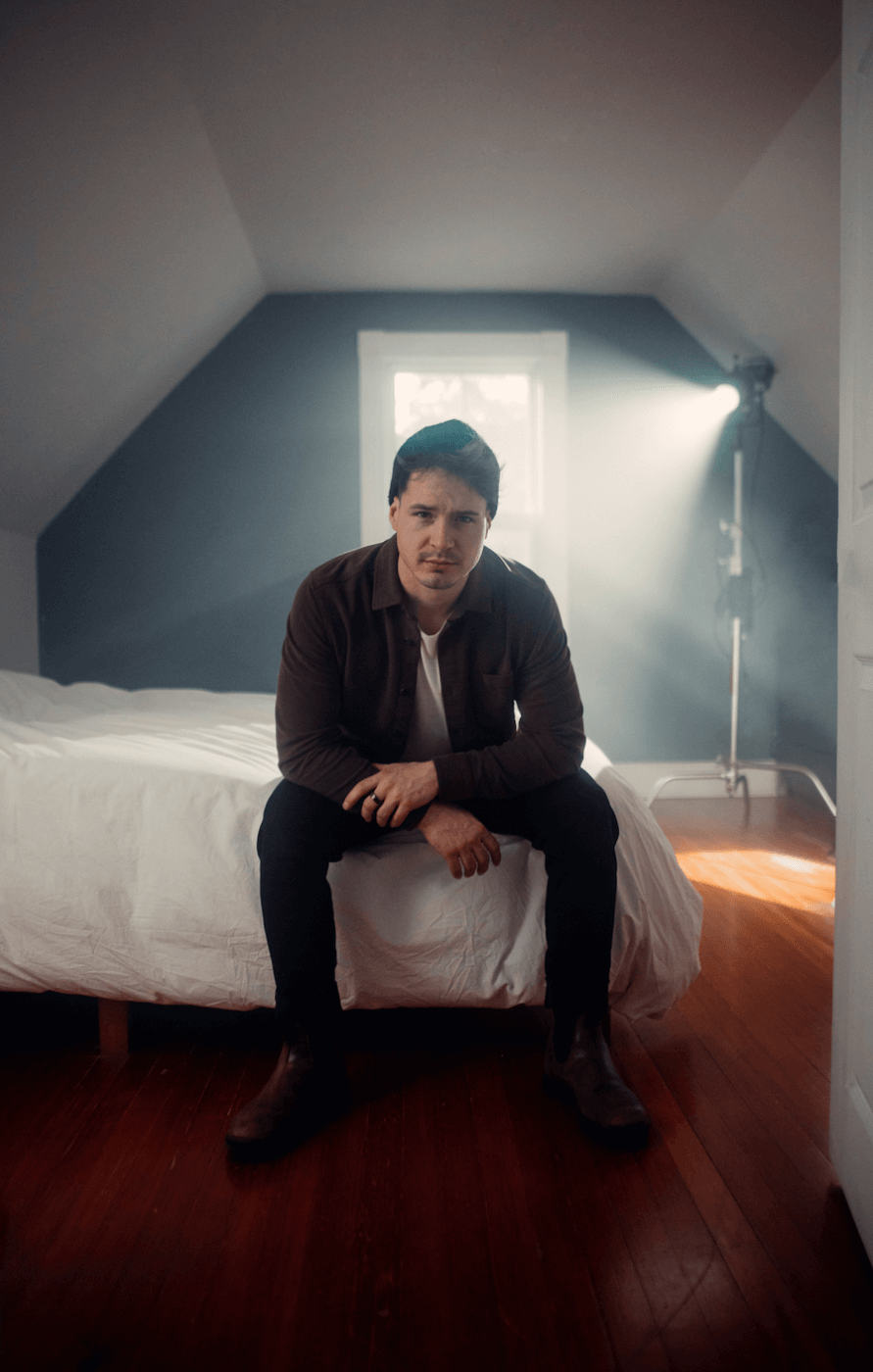
Name three ‘must haves’ for every filmmaker?
Colin: It's so important to have a quick large SSD, something fast with 4-8TB at least. It's truly so critical and I can't emphasize that enough. It's been a lifesaver. You don't want to bottleneck your workflow at a transfer speed. The second thing, would be a strong, efficient workflow. Before you enter any new project or job, really take the time to be detailed. This will help you figure out what you have and what you don't have and set you up for success as a whole. The third and final 'must have' would be patience. This is a lengthy journey and something you should be doing out of passion. However, sometimes passion takes a hit. This career is full of long days, long years even. There are days, months and weeks of endless projects. You have to stick through and bring that energy on set, especially if you're a director. Everyone is looking for you to set the pace and create a positive atmosphere. Things go wrong in productions and you have to anticipate that, remain calm and be a pro problem-solver.
Be sure to follow Colin's work & adventures at @ColinTheCreator!


